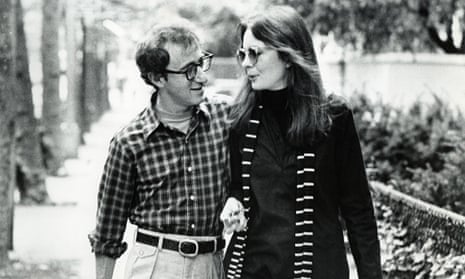If, like notorious neurotic Woody Allen, you feel that life is divided up into the horrible and the miserable, you may be cheered (or not, of course) by news of a study linking the misery of anxiety with the reward of a fertile imagination.
Studies that make a connection between suffering and creativity are not treading new ground. Nor are they always popular. The writer AL Kennedy, for example, throws some great shade on the myth of the tortured artist. And recent research that linked inventiveness and high IQ with poor mental health – specifically schizophrenia and bipolar disorder – was also questioned by scientists.
But nevertheless here comes another theory, published in the journal Trends in Cognitive Science, stating that being neurotic could have creative benefits.
One of the report’s authors, Dr Adam Perkins, from King’s College London, says that those who score highly on the neuroticism scale also have a highly active imagination. Neurotic thoughts, he says, are similar to daydreams. Which makes them sound quite lovely rather than the gut-wrenching, paralysing shards of self doubt that they are. This active imagination is, of course, all the better to imagine terrible things with. “It’s daydreaming about your problems, which isn’t a pleasant thing. But it may provide some advantages,” says Dr Perkins. Or as the headline in the Independent has it: “You could be a creative genius.”
Well, maybe. The tendency to experience negative thoughts and feelings – to worry – was, I thought, a universal one, until I was asked if I was neurotic or not. When I replied that of course of was, because everyone is, the reply “only neurotic people say that” was unassailable.
But I have always been a worrier. Two years ago I bought a book called How to Worry Less About Money but I have been too anxious to read a word of it. Last night, I couldn’t sleep because I was worrying about climate change (what a Guardian cliche: never fear, I’ll send it in to Pseud’s Corner myself) thanks to Helen Simpson’s In Flight Entertainment – a brilliant book, but a poor choice of bedtime reading for the fretful. It did, however, make a pleasant change from my usual list of night time woes: career (lack of); money (see career); the cat’s health; my health; my inefficacy, thus far, at reproducing; the fact that I forgot to offer my landlord a cup of coffee when he came round to look at the damp patch three weeks ago.
There are times when I’ve wished I could sail through life worry-free. How nice to go on holiday and not spend the majority of my time wondering if the cat has unexpectedly died in a horrible way or the house burned down; how wonderful to assume, when I can’t get hold of my boyfriend, that his phone has run out of charge rather than the million and one scenarios that play through my mind including but not limited to: he doesn’t love me any more; unpleasant accident; he’s run away to join the circus.
But perhaps it’s time to put a positive spin on things. After all, if we weren’t neurotic, we’d take the headline finding of this research as an unalloyed boost to our self-esteem. For if, as Perkins believes, we worriers have a more active imagination than the general population, we are also, as he says, “primed to generate creative solutions”. We can daydream our troubles away.
And if that doesn’t work, let’s rebrand neurosis. Don’t we miserabilists deserve a better image? The Independent, for example, uses the phrase “original thinkers”. I could live with that.
